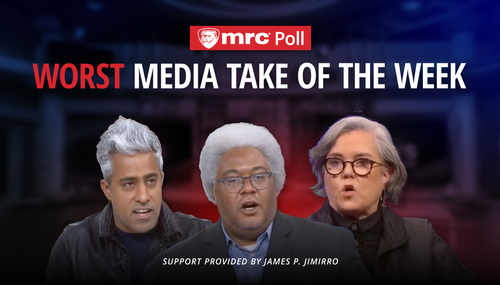 Joseph Wulfsohn at Foxnews.com explored what NPR senior editor Uri Berliner wrote about Israel in his bombshell expose at The Free Press, run by former New York Times editorial writer Bari Weiss. This may be the biggest insider story since Bernard Goldberg wrote about CBS News in his book Bias. But in this case, Berliner is still inside NPR….at least, for now.
Joseph Wulfsohn at Foxnews.com explored what NPR senior editor Uri Berliner wrote about Israel in his bombshell expose at The Free Press, run by former New York Times editorial writer Bari Weiss. This may be the biggest insider story since Bernard Goldberg wrote about CBS News in his book Bias. But in this case, Berliner is still inside NPR….at least, for now.
First, he mentioned Israel on a list: “There’s an unspoken consensus about the stories we should pursue and how they should be framed. It’s frictionless—one story after another about instances of supposed racism, transphobia, signs of the climate apocalypse, Israel doing something bad, and the dire threat of Republican policies. It’s almost like an assembly line.”
Then he was more specific:
We have approached the Israel-Hamas war and its spillover onto streets and campuses through the ‘intersectional’ lens that has jumped from the faculty lounge to newsrooms. Oppressor versus oppressed. That’s meant highlighting the suffering of Palestinians at almost every turn while downplaying the atrocities of October 7, overlooking how Hamas intentionally puts Palestinian civilians in peril, and giving little weight to the explosion of antisemitic hate around the world.
Berliner's page at NPR.org shows he helped with a 2022 story on how Adidas cut Trump-backing rapper Kanye West loose after anti-Semitic outbursts. But since October 7, NPR's been more aggressive in promoting the Council on American-Islamic Relations (and their claims of exploding Islamophobia) than the Anti-Defamation League, and both are firmly on the Left.
Wulfsohn reported Berliner went more in-depth on the Honestly podcast.
"To me, this is probably the most troubling thing because you know, in the weeks immediately following October 7, we saw Jewish students being locked into a library where pro-Palestinian protesters were banging on the door. We saw ‘Glory be to the martyrs’ projected on a school building. We saw posters of kidnapped children and elders being ripped down, and we really didn't cover this sort of stunning outburst of antisemitism for a number of weeks," Berliner told host Bari Weiss.
"And the first story of any significance that we did on antisemitism was a story about pro-ceasefire Jews getting a bunch of crap from their Zionist relatives. And that was like the first story we did about antisemitism of any significance. And to me, it was like, ‘What is going on here?’"
It appears Berliner was referring to a report published Oct. 28 titled "For some Jewish peace activists, demands for a ceasefire come at a personal cost."
"This is one of the things I brought up with our senior news executives. And I will say, you know, when I bring these things up, everyone is polite. They say, 'It's a good point. I understand your perspective.’ But I don't think things changed," Berliner added.
Berliner also mentioned his negative reaction when NPR colleagues started advocating for the terms preferred by what he vaguely called a "Middle Eastern journalism affinity group." We could guess the terms in question included "genocide," "terrorism," and "from the river to the sea."
"I do remember on October 10, this was three days after the attack when Israel has not responded, this was in our union chat group," Berliner said. "We had one journalist saying, let's use this guidance from this Middle Eastern journalism affinity group about the language we use describing this war that's about to start. And I said no. We should not get our guidance from journalism advocacy groups. I don't think we should get our guidance from the ADL, no. We need to make our own decisions about how we cover this. I got a lot of pushback, people say, 'No, this isn't political. This is just using the precise language,' but it was a very tense exchange."
This is what the Left does. Using "politically correct" or "sensitive" lingo "isn't political," it's "precise."




